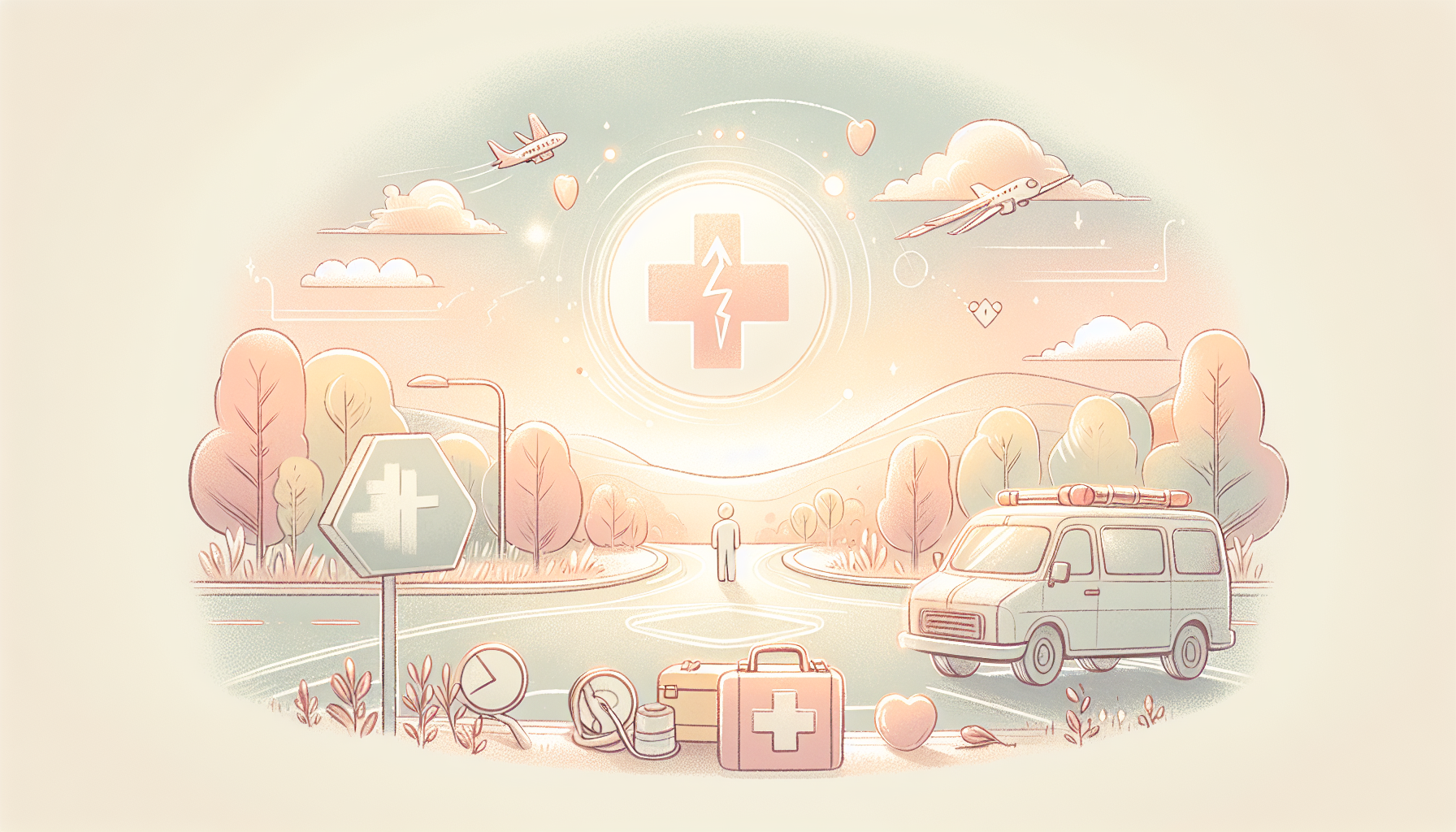Healthcare After a Traffic Accident: What to Do in Turkey

Living in Turkey as an expat comes with countless new experiences, from exploring local cuisine to navigating daily culture. But one thing often overlooked is how to handle emergencies—specifically, traffic accidents. With Turkey’s busy roads and fast-paced driving culture, getting involved in a car or motorcycle accident is not uncommon. Understanding what to do immediately after an accident and how to access healthcare can significantly ease the stress during such incidents.
Step One: Immediate Response at the Scene
The first moments after a traffic accident can be disorienting. However, knowing what to do at the scene makes a major difference in ensuring your safety and legal protection.
Start by checking yourself and others for injuries. If someone is seriously hurt, call 112, Turkey’s emergency number, and request an ambulance. Even if injuries seem minor, it’s advisable to seek medical check-up to rule out internal trauma.
- Always stop at the scene, even if damage is minimal
- Use your hazard lights and caution triangle to prevent further accidents
- Call the traffic police (155) if there are injuries or disagreements about fault
- Take photos of all vehicles, license plates, and street signs
- Exchange contact and insurance information with other drivers involved
Official reports are needed to file insurance claims and access some health services. If police are not required, drivers can fill out a “Traffic Accident Record Report” known as “Kaza Tespit Tutanağı,” available from insurance companies.
Step Two: Medical Evaluation and Treatment Access
Even when symptoms don’t immediately appear, injury risks remain. Turkey offers several healthcare options for expats based on your residence and insurance status.
- State Hospitals (Devlet Hastanesi): Affordable and widespread, they accept foreign nationals registered with social security (SGK)
- Private Hospitals: Offer quicker service and are preferred by many expats who have private insurance
- University Hospitals: Equipped with specialists and advanced care, often located in larger cities
If you’re enrolled in SGK through your work permit or voluntary entry, you can access state hospitals with your Foreigner ID (Yabancı Kimlik No). Private insurance holders should contact their providers for a list of affiliated hospitals. Some large private hospitals even have English-speaking staff and specially trained international patient units, making communication easier.
Step Three: Documentation and Follow-Up
After receiving initial care, make sure to organize your paperwork. Turkish healthcare providers issue detailed reports called “Epikriz,” which include diagnosis, treatment, and discharge status. These are essential for legal claims and ongoing care.
- Request printed medical reports in both Turkish and English, when possible
- Keep copies of X-rays, prescriptions, and blood work
- Ask for bills and receipts for reimbursement if you’re using private insurance
For ongoing treatment such as physical therapy or follow-up exams, hospitals typically schedule future appointments right after discharge. Make sure to retain your hospital records, as you’ll need to present them for additional visits or specialist consultations.
Step Four: Reporting the Accident and Insurance Claims
Following a traffic accident, both health and car insurance claims must be filed quickly. Your ability to receive reimbursement or additional treatment may depend on how well you document your case and fulfill administrative steps.
- Contact your car insurance provider within three days of the accident
- Submit the police report or Traffic Accident Form with your application
- Forward your medical documents and receipts to your health insurer
- Ask your insurance company about coverage for diagnostics, trauma care, and rehab
If there’s a dispute over responsibility or if injuries were severe, you may want to consult a legal advisor. Some law firms specialize in assisting expats and can guide you through official complaint channels and court processes in Turkey. Be sure to act quickly, as Turkish law sets time limits for filing personal injury claims.
Step Five: Building a Personal Emergency Plan
As an expat, being prepared for emergencies gives you peace of mind and promotes safety. Build a personal emergency plan that covers more than just your daily needs.
- Save local emergency numbers (112, 155, and your consulate) to your phone
- Know the closest hospital or urgent care facility near your home and workplace
- Keep a personal medical file, including blood type, allergies, and current medications
- Carry your resident ID and insurance card at all times
- Download translation apps or carry a list of key Turkish medical phrases
Families with children or elderly members should create a shared emergency plan. Discuss meeting locations, transportation options, and how to communicate during urgent events. Having these resources ready in your phone or written in your purse or glove compartment helps a lot under pressure.
Expats living in Turkey face enough challenges, and traffic accidents shouldn’t leave you confused or helpless. By understanding your rights, keeping your documents organized, and knowing how to reach local healthcare services, you give yourself and your loved ones a safer, more secure experience abroad.
